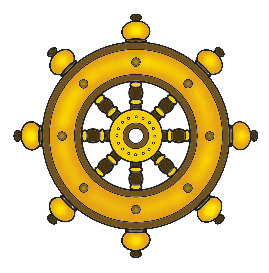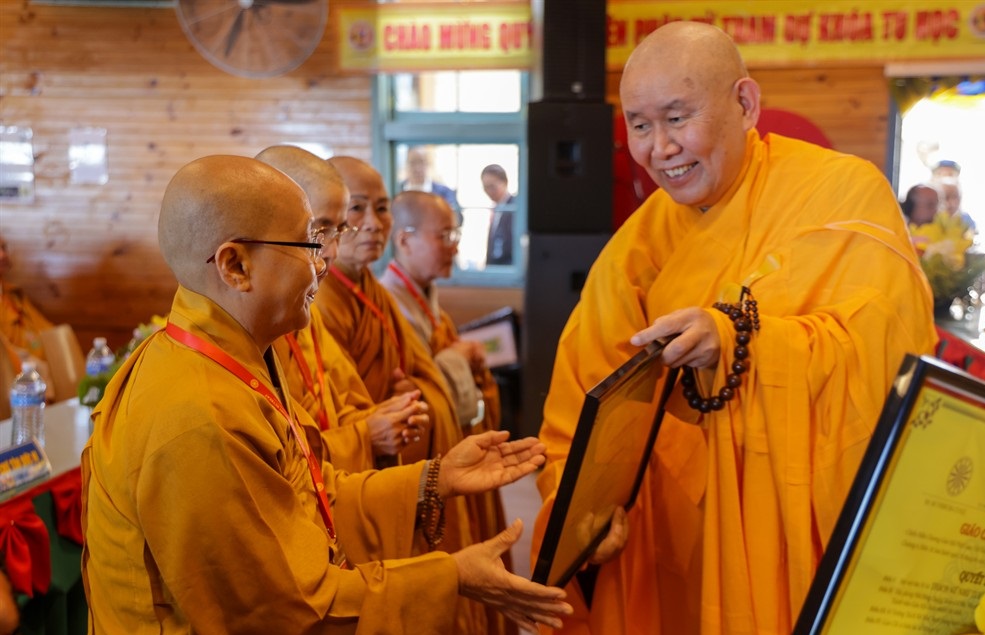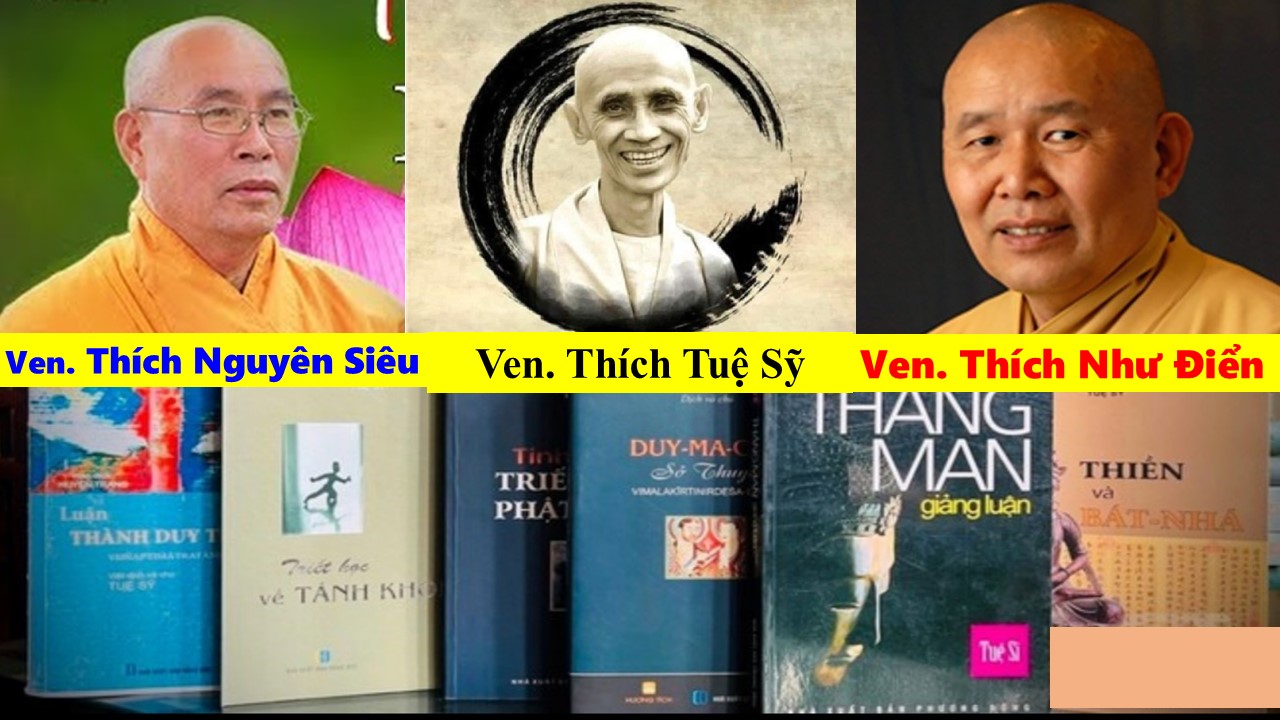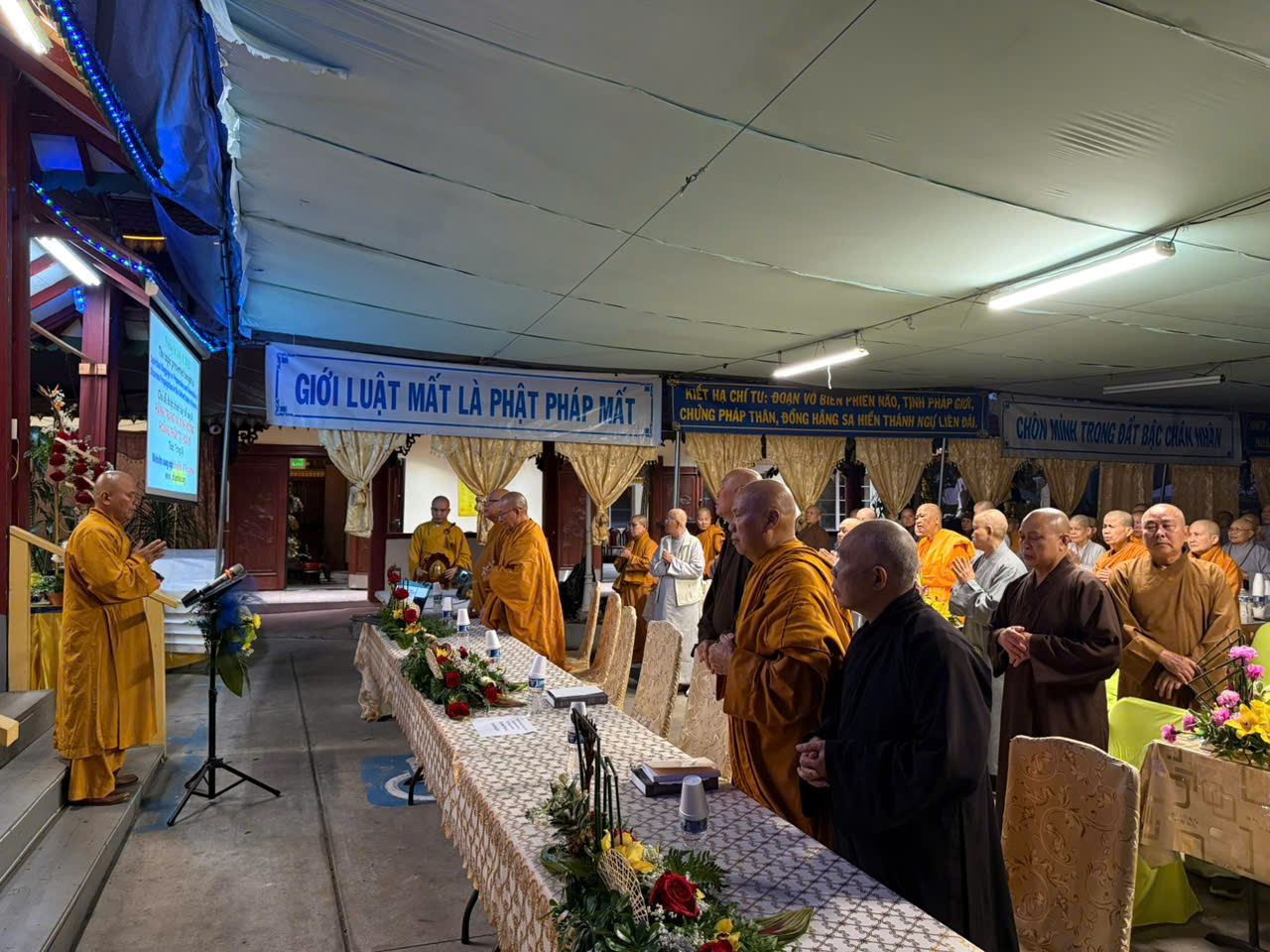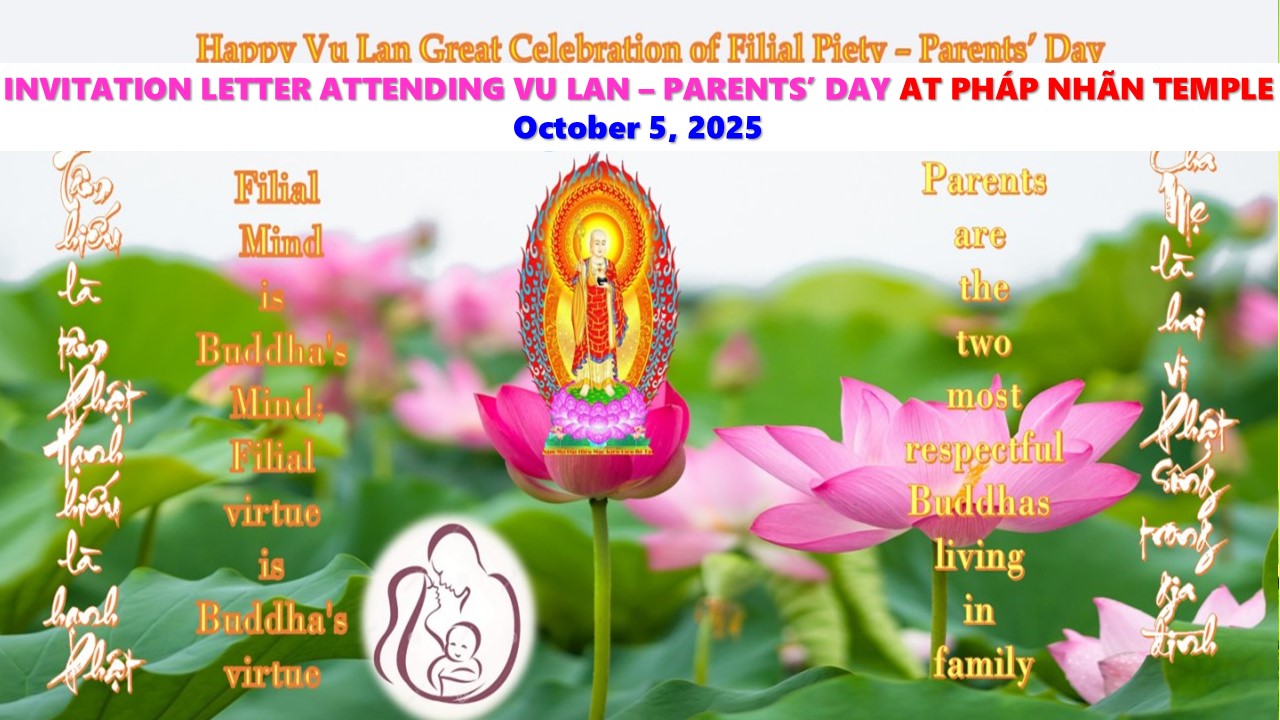Dharma Master Andrew. J. Williams
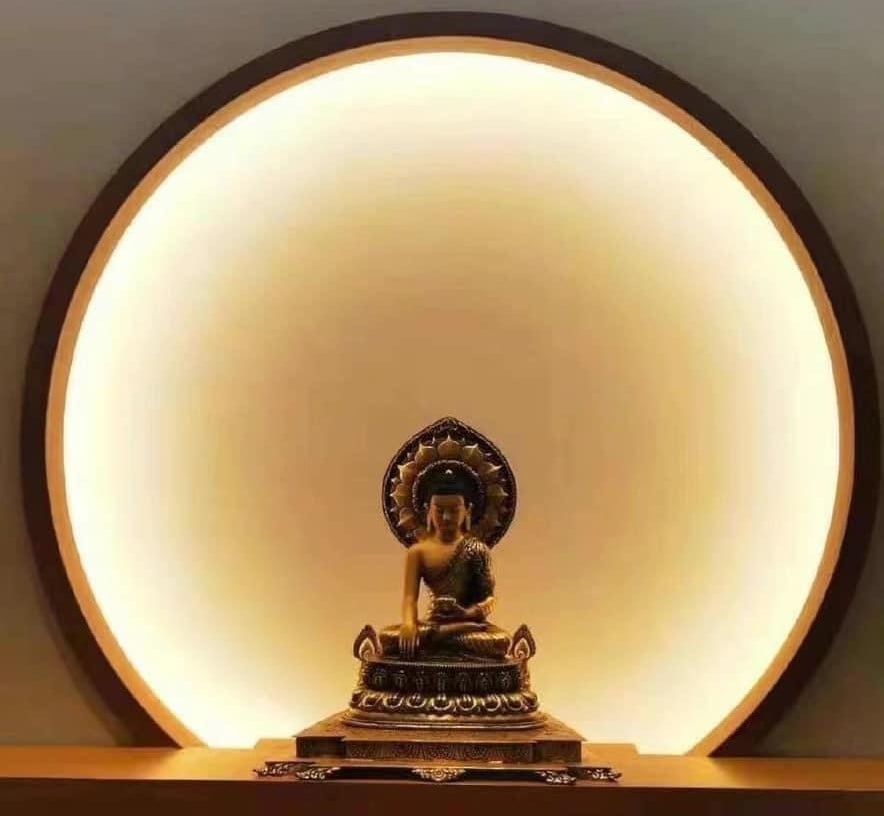
GOOD Q&A TO OPEN THE MIND
●◆● ════ ◆◇◆ ════ ●◆●
“A little while ago I was asked the following good question by a very thoughtful and conscientious young man, following a Dharma class. My brief answer follows below.
Question: “Can you explain how feelings of self-doubt are also a form of attachment to self? Can you offer strategies on how to be more loving and kind towards yourself, and not place so many expectations on yourself?”
Answer: “To live a contented life we must develop and maintain an open mind, for if we are open-minded we will experience life with more clarity and understanding. We will allow ourselves the opportunity to be happier, and be able to deal with life’s changes and difficulties more calmly, as well as being able to find solutions to our problems with less worry and anxiety.
When our mind is not open, we cut ourselves off from experiencing life to the fullest. It is not beneficial to keep a closed mind, thinking that our way is the only way, that this is just the way we are. The more our mind is closed, the more likely we are to drag ourselves and others around us down, and the less likely we are to experience contentment and peace, and to develop true compassion and understanding.
We are intimately connected with all of nature. It is most important to realise this. For if we know this fact then we are more likely to coexist with all living beings and all of nature in a peaceful and harmonious way. Many of our worries, discontent, agitation and feelings of being disconnected arise due to not realising this natural truth. We should open our minds and be less self-centred.
Take for example a camera. When the camera’s focus is set on close-up, all we see through the lens is the close-up. Nothing else is seen. This is like when we are self-centred. We are focusing on ourselves, our problems and discontent, our likes and dislikes, and so on and so forth. At this time they are like the whole universe and nothing or no one else matters or exists.
But the more we widen and open the focus of the camera’s lens, the more views and wider perspective of all that is around us is available to our vision. Likewise, the more we widen our focus, widen our view, open our mind, the more we allow ourselves the opportunity to develop genuine insight into ourselves, others and all of nature, and be at peace and in harmony with ourselves and all that surrounds us.””
●◆● ════ ◆◇◆ ════ ●◆●
~Dharma Master Andrew. J. Williams~
GOOD Q&A TO LET GO OF ANGER
●◆● ════ ◆◇◆ ════ ●◆●
“A little while ago I was asked the following good question by a very thoughtful and conscientious young student, following a Dharma class. My brief answer follows below.
Question: “Can you offer strategies on how to manage anger? When I’m in the middle of being angry, it is often very difficult for me to stop and be mindful because I am so caught up in the emotion. How do I learn to stop being so caught up in the emotion. How do I learn to stop being so caught up in my emotions, so I don’t end up engaging in thoughts, speech and action that I may regret?”
Answer: “Anger only ever causes suffering. We should eradicate it whenever it arises. Just as we don’t hang onto rain when the sun comes out. All things pass. Replace anger with acceptance, patience, appreciation and loving kindness.
We should do our very best to protect our mind by enthusiastically practising the Four Great Efforts, as taught by the Buddha. To eradicate any unwholesome thoughts that have already arisen, to stop any new unwholesome thoughts from arising, to give rise to wholesome thoughts and to maintain wholesome thoughts that have already arisen. The Buddha said, “With sustained effort and sincerity, discipline and self control, the wise become like islands which no flood can overwhelm”.
When mental sensations and thoughts arise, don’t cling to them or follow them, or turn them into something bigger than they are. For they are simply conditioned habitual tendencies.
Be proactive and ‘nip them in the bud’ by just letting them go naturally, rather than being reactive, reacting to them and then reacting to the reaction, and so on and so forth.
For instance, if we let the weeds in the garden grow, unrestrained and uncontrolled, the size and amount of weeds continually increase and become overwhelming.
Likewise, if our thoughts and feelings are left to grow, unrestrained and uncontrolled, they will intensify and eventually become overwhelming.
We experience the world through our senses, which gives rise to mental sensations or feelings, which are either pleasant, unpleasant or neutral. We then recognise or perceive these sensations, and normally, then impulsively react, which in turn leaves a karmic imprint on our consciousness.
We should create, what I like to call, a ‘buffer zone’ between the perception of the sensation and the impulsive reaction. In other words, allow ourselves the opportunity to not impulsively react. In this way we can protect ourselves from creating negative karma.
To give a brief example, if we bump our head on something hard, generally the sensation we experience would be unpleasant. We then perceive this unpleasant sensation and impulsively react with frustration or even fully blown anger, which in turn leaves a negative karmic imprint on our consciousness.
However if we create a ‘buffer zone’ between our perception of the unpleasant feeling and our impulsive reaction, we will avoid creating negative karma.
Enjoy your ‘buffer zone’. ‘Nip negativity in the bud’, before it becomes overwhelming.””
●◆● ════ ◆◇◆ ════ ●◆●
~Dharma Master Andrew. J. Williams~
GOOD Q&A TO UNDERSTAND KARMA
●◆● ════ ◆◇◆ ════ ●◆●
“A little while ago I was asked the following good question by a very thoughtful and conscientious young student, following a Dharma class. My brief answer follows below.
Question: “How do you decide what is ‘good’ or ‘bad’ when the issue of morality is subjective? For example, in some cultures, it is acceptable to kill animals and offer them as sacrifices to higher beings. In their minds, this is perfectly acceptable and not considered a ‘sin’. So since these people have killed without bad intention, do they still suffer from negative karma? Even if their intentions were not entirely unwholesome, they have still committed the act of taking a life. Does this still create more bad karma?”
Answer: “Destroying the life of any living being will always bring unwholesome and undesirable results. Whereas, respecting and protecting the life of any living will always bring wholesome and desirable results. There’s no escaping the universal law of karma.
Put simply, we can classify any act as ‘good’ when it results in the benefit of one and all. When it causes peace, understanding, harmony and joy.
Whereas, we can classify any act as ‘bad’ when it results in the harming of ourselves and others. When it causes conflict, delusion, discord and suffering.
Of course, of utmost importance is our intention. The stronger and more intense the intention behind our actions is, the stronger and more intense will be the results.
Any action of body, speech, or mind, places an imprint, an ‘energy potential’ or ‘seed’ in the mind. Mental seeds are planted through your awareness of what you do, say or think. The imprints of these actions are left on the mind stream and carried on moment by moment – the present moment of mind coming from the previous moment of mind.
When the necessary supporting conditions are in place, this imprint, or latent potency, manifests as perceptions or experiences of happiness or suffering. We can liken this to a biological seed, which ripens when the contributing causes and conditions of water, soil, sun, and the like are gathered together.
Therefore, for the benefit of ourselves and others, we should do our very best to avoid unwholesome actions of body, speech and mind that bring harm, and engage in only wholesome acts of body, speech and mind that bring benefit, to one and all.”
May these words, both the question and the answer, be somewhat helpful on your path to enlightenment.”
●◆● ════ ◆◇◆ ════ ●◆●
~Dharma Master Andrew. J. Williams~
GOOD Q&A TO MAINTAIN PURE INTENTION
●◆● ════ ◆◇◆ ════ ●◆●
“A little while ago I was asked the following good question by a very thoughtful and conscientious young medical student, following a Dharma class. My brief answer follows below.
Question: “In the future when treating patients how can I use Buddhism to help me?”
Answer: “All aspects of Buddhism will help when you are treating patients. For instance, true wisdom and understanding, along with true love and compassion, will help when dealing with the varying personalities and medical conditions of the patients, as well as with the processes of medical examination, diagnosis, prognosis, treatment plan and the implementation of the treatment plan, and so on and so forth.
Furthermore, you will benefit yourself and your patients by engaging in the practise of the six paramita’s. Namely; generosity, morality, patience, enthusiastic effort, concentration and wisdom.
The Buddha Dharma will guide you as you guide your patients. Maintain a calm and clear mind, free from worry and agitation, and maintain pure intention.”
I hope that these words, both the question and the answer, are somewhat helpful to you on your path to enlightenment.”
●◆● ════ ◆◇◆ ════ ●◆●
~Dharma Master Andrew. J. Williams~

